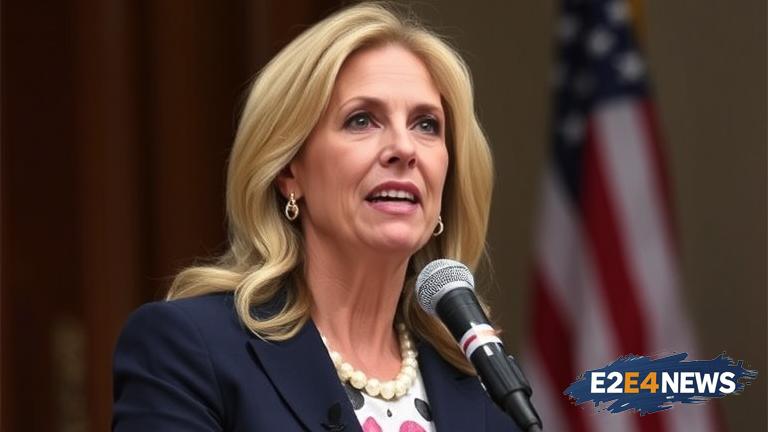A recent development in the political landscape of Washington state has seen a conservative out-of-state PAC extending its support to Sara Nelson, a candidate in the upcoming elections. This move has generated significant interest and controversy, with many questioning the motivations behind such backing. The PAC, known for its conservative stance, has been involved in various political campaigns across the country, often supporting candidates who align with its ideological views. By throwing its weight behind Sara Nelson, the PAC aims to influence the outcome of the election in Washington state. However, this intervention has not been without criticism, as many locals view the PAC’s involvement as an attempt to impose external influence on the state’s political affairs. The debate surrounding the PAC’s support for Sara Nelson highlights the complex dynamics of political funding and the role of external entities in shaping local elections. Critics argue that such involvement can undermine the democratic process, allowing outside interests to dictate the course of political events in the state. On the other hand, supporters of the PAC’s move contend that it represents a legitimate form of political engagement, enabling like-minded individuals and organizations to contribute to the electoral process. As the election draws near, the impact of the PAC’s backing on Sara Nelson’s campaign remains to be seen. The candidate’s stance on various issues, including economic policy, healthcare, and education, will be under scrutiny, with voters seeking to understand how the PAC’s support might influence her decisions if elected. The involvement of out-of-state PACs in local elections also raises questions about transparency and accountability, with calls for greater disclosure of political funding sources. In response to these concerns, proponents of campaign finance reform advocate for stricter regulations to limit the influence of external money in politics. Meanwhile, Sara Nelson’s campaign will need to navigate these challenges while maintaining a focus on the issues that matter most to the voters of Washington state. The state’s political landscape is known for its progressive leanings, and the endorsement by a conservative PAC may pose a challenge for Nelson in appealing to a broader base of voters. Despite these hurdles, the candidate remains committed to her platform, emphasizing the need for effective governance and responsible leadership. As the campaign unfolds, it will be crucial for Nelson to articulate her vision clearly and demonstrate how her policies will benefit the people of Washington state. The endorsement by the conservative PAC has undoubtedly introduced a new dynamic into the election, with potential implications for the state’s political future. In the coming weeks, voters will be watching closely to see how Nelson’s campaign evolves and how the PAC’s support influences her strategy. The interplay between local politics and external influences will continue to be a topic of discussion, with the outcome of the election likely to have significant repercussions for the state’s political landscape. Ultimately, the decision rests with the voters, who will determine whether the backing of a conservative out-of-state PAC is a decisive factor in their choice of candidate. As the election season heats up, the focus will shift towards the issues, the candidates, and the visions they present for the future of Washington state. The role of external PACs in shaping political outcomes will remain a subject of debate, with implications extending beyond the current election cycle. In conclusion, the support of a conservative out-of-state PAC for Sara Nelson’s campaign has introduced a complex and controversial element into the political discourse of Washington state, highlighting the need for transparency, accountability, and a nuanced understanding of the factors influencing local elections.
